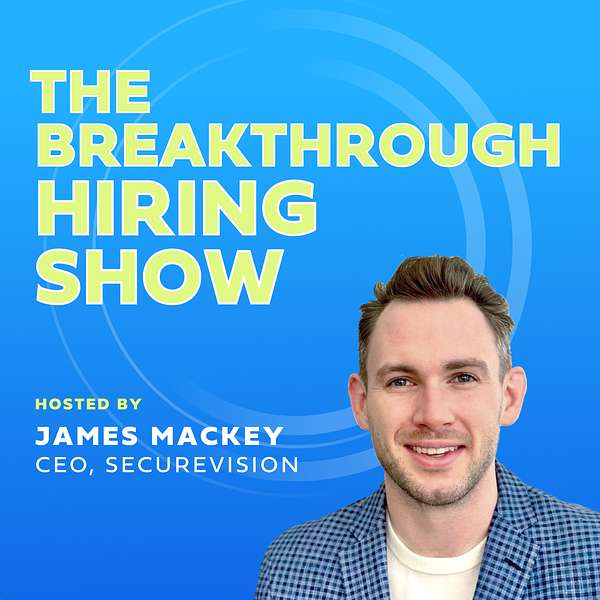
The Breakthrough Hiring Show: Recruiting and Talent Acquisition Conversations
Welcome to The Breakthrough Hiring Show! We are on a mission to help leaders make hiring a competitive advantage.
Join our host, James Mackey, and guests as they discuss various topics, with episodes ranging from high-level thought leadership to the tactical implementation of process and technology.
You will learn how to:
- Shift your team’s culture to a talent-first organization.
- Develop a step-by-step guide to hiring and empowering top talent.
- Leverage data, process, and technology to achieve hiring success.
Thank you to our sponsor, SecureVision, for making this show possible!
The Breakthrough Hiring Show: Recruiting and Talent Acquisition Conversations
EP 69: 2023 Comp Strategy. Salaries aren't going down. Inflation is "right-sizing" salaries back to the golden mean. Why you shouldn't be the top bidder for talent.
Many tech CEOs are asking how the further constriction of the capital markets may impact salary ranges. Particularly now with the news of Silicon Valley bank crashing.
Some CEOs are asking if they can offer lower salaries to new hires.
I remind them that they don’t need to artificially lower salary ranges because of the high inflation rate that we have experienced over the past couple of years.
By salaries staying in a similar range in a high-inflation environment, the economy is healing, and salaries are returning to a healthy median.
The good news for folks in tech is that the median has shifted upward over the past few years, and people are still making more money in tech, even when factoring in inflation.
There’s still a talent pool shortage in tech that will continue to provide salary growth. The days of insane valuations and salary jumps of 50-100K within a year that we saw in 2021 are over. It wasn’t sustainable or an accurate representation of the value being delivered.
The good news for employers is that they can stay competitive with salaries by staying in a similar range as last year. To the extent possible, as the market stabilizes, companies need to consider sustainable salary increases for existing staff.
But it’s important to note that most companies cannot provide moderate salary increases and have similar constrictions. We are all in the same boat, so this will not likely negatively impact companies.
Companies shouldn’t attempt to be the highest bidder for top talent. I recommend companies target being around the 75% percentile for salary ranges.
Here’s why:
1. FAANG could go through a hiring surge and outbid you by 50%.
2. A startup may raise a large round and throw money at people at an unsustainable rate. They will likely need to go through layoffs in the future, but there’s nothing you can do about leaders choosing to run their business in an irresponsible way.
Companies that offer the top end of the range are more likely to make deep cuts in a correction and may need to cut people providing significant value to customers.
Employees must consider that accepting an offer from the highest bidder isn’t always an intelligent decision. They will be more likely to be cut in a downturn. And earlier in a downturn, which increases the likelihood of a longer period of unemployment.
It’s important to remember that companies aren’t committing to a salary on an annual period.
They are committing to a salary for the next payroll cycle. So if an employee is offered 200K but is laid off after 6 months at the beginning of a correction, and therefore, is less likely to find another role for, let’s say 6 months, they are making less money than someone making 120K a year, who was able to keep their job because they have a sustainable salary.
Thank you to our sponsor, SecureVision, for making this show possible!
Follow us:
https://www.linkedin.com/company/82436841/
SecureVision: #1 Rated Embedded Recruitment Firm on G2!
https://www.g2.com/products/securevision/reviews
Thanks for listening!
